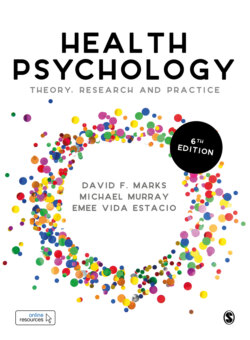Читать книгу Health Psychology - Michael Murray - Страница 69
На сайте Литреса книга снята с продажи.
Social Justice
ОглавлениеCritics of research into social inequalities in health often charge that social inequalities are an inevitable part of life and are also necessary for social progress. An alternative perspective is to consider not simply inequalities per se but inequities in health. According to Dahlgren and Whitehead (1991), health inequalities can be considered as inequities when they are avoidable, unnecessary and unfair. The issue of fairness leads us to consider the issue of social justice.
A useful starting point is the theory of ‘justice as fairness’ developed by the moral philosopher John Rawls (1999). He identified certain underlying principles of a just society, as follows:
Assure people equal basic liberties, including guaranteeing the right of political participation.
Provide a robust form of equal opportunity.
Limit inequalities to those that benefit the least advantaged.
Daniels et al. (2000) argued that adhering to these principles would address the basic social inequalities in health. They detailed a series of implications for social organization that flow from the acceptance of these principles. First, assuring people equal basic liberties implies that everyone has an equal right to fully participate in politics. In turn, this will contribute to improvements in health since, according to social capital theory, political participation is an important determinant of health.
Second, providing measures actively to promote equal opportunities implies the introduction of measures to reduce socio-economic inequalities and other social obstacles to equal opportunities. Such measures would include comprehensive childcare and childhood interventions to combat any disadvantages of family background (Daniels et al., 2000). They would also include comprehensive health care for all, including support services for those with disabilities.
Finally, a just society would allow only those inequalities in income and wealth that would benefit the least advantaged. This requires direct challenge to the contemporary neoliberal philosophy that promotes the maximization of profit and increasing the extent of social inequality. A Framework Convention on Global Health (FCGH) grounded in the human right to health could help to reconstruct global governance for health and offer a new vision post-Millennium Development Goals (Gostin and Friedman, 2013).
To an increasing extent, psychological organizations have been recognizing the links between poor social conditions and physical and mental health. Somewhat belatedly, they are catching up with Villermé’s and Engels’ findings from the 1840s. But why is awareness of social justice issues among the psychology profession so slow in the making? The American Psychological Association was founded in 1892, but it took more than 100 years for the Association to pass a resolution on ‘Poverty and Socio-economic Status’ in the year 2000. The resolution called for a programme of research on the causes and impact of poverty, negative attitudes towards people living in poverty, strategies to reduce poverty, and the evaluation of anti-poverty programmes. The resolution has been followed by a few new initiatives, including interventions facilitated by critical and community health psychologists (see Chapter 16). A special issue on poverty reduction was published in the Journal of Health Psychology in October 2010.
Much more could be achieved if psychologists were more willing to engage with social justice issues ‘in their own backyards’. Shamefully, in our opinion, societies like the British Psychological Society (BPS) have maintained a stance of neutrality on the grounds that the society is a charity and that it is prohibited from engaging in political issues. But times are changing. At the 2017 Annual Conference, the outgoing President Peter Kinderman delivered an address entitled ‘Psychology is action, not thinking about oneself’ (Kinderman, 2017). In this he called on psychologists ‘to speak out about those social, economic and political circumstances that impact on our clients and the general public, and to bring such evidence to politicians and policy makers’. More recently the BPS agreed that a priority for research and practice should be poverty and ways of addressing it (https://www.bps.org.uk/blogs/chief-executive/focus-poverty). Social justice isn’t simply a political issue; it is a life and death issue, affecting the mental and physical well-being of billions of people. It is a problem that is too important to leave to politicians. It affects everybody; everybody can do something towards creating a more just society.
A focus on individual change to the neglect of the broader social determinants of health and illness accepts the status quo instead of challenging it and only leads to victim blaming. There is a need for what Horrocks and Johnson (2014) have described as a ‘socially-situated’ approach to promoting health and preventing illness. The continued focus on individual behaviour-change strategies reflects powerful ideological interests (Braun and Fisher, 2013). Health psychologists can challenge the current dominant neoliberal ideology through, for example, aligning with popular health movements for change (e.g., People’s Health Movement, 2000).
